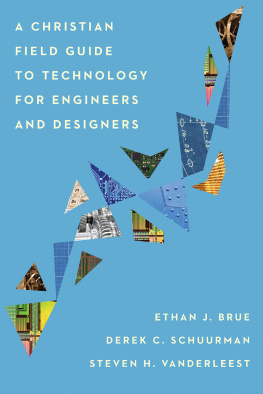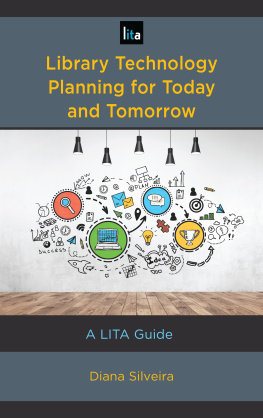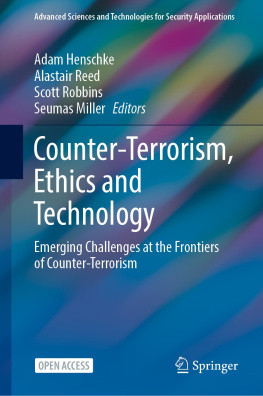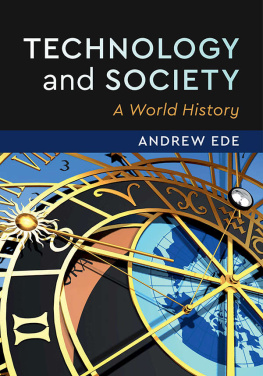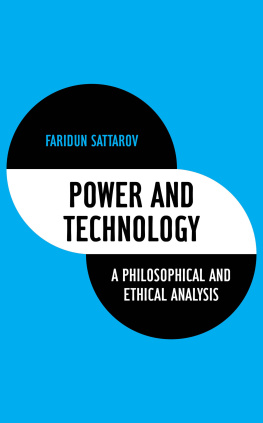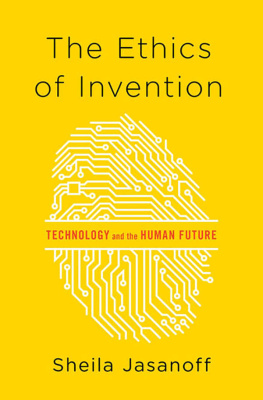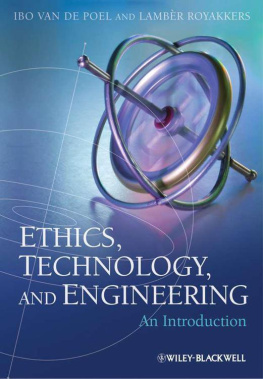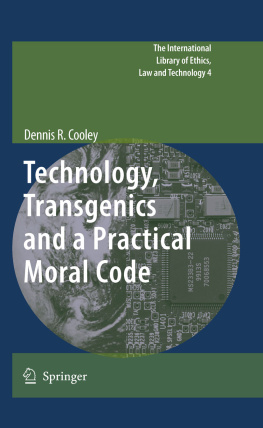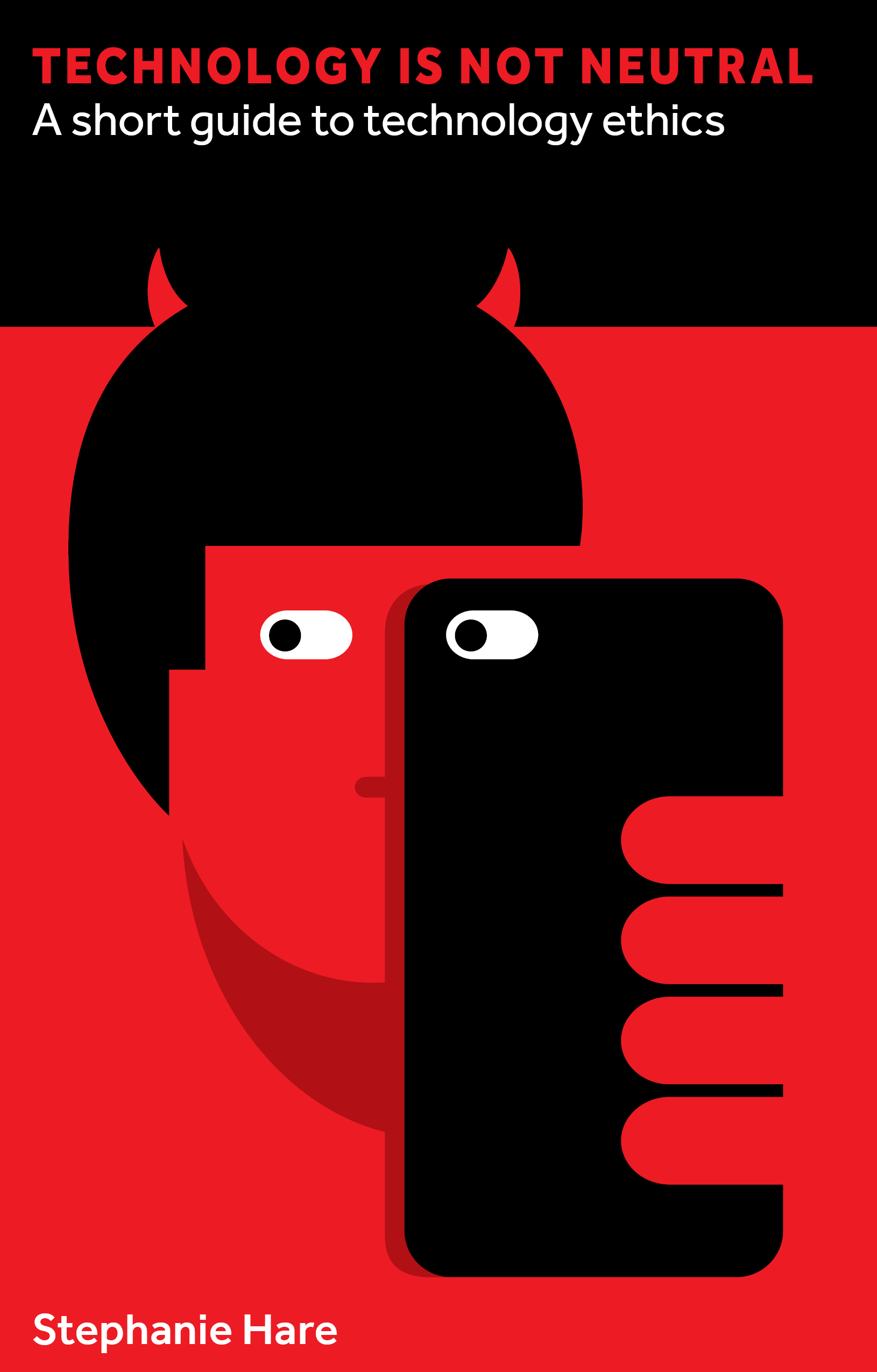Praise for Technology Is Not Neutral
Our globe-spanning economy, and our social interactions, depend on ever more pervasive digital technology, controlled by governments and multinational conglomerates. Were confronted by trade-offs between security, privacy and freedom. Stephanie Hare offers the overview that concerned citizens need to ensure that these potentially scary tools arent misused. Her book deserves wide readership.
Professor Lord Martin Rees, Astronomer Royal and author of On the Future: Prospects for Humanity
A highly readable and enlightening introduction to the ethics of technology with none of the usual finger-wagging! Youll never look at your cell phone the same way again.
Stuart Russell, Professor of Computer Science, University of California, Berkeley and author of Human Compatible: AI and the Problem of Control
Stephanie Hare makes an important and very timely contribution to our current debate over the power of Big Tech and the seemingly inexorable advance of artificial intelligence. Using telling examples from the past and the present she obliges the reader to consider the price humanity can pay for new technologies and how we can and must think ethically about their use.
Margaret MacMillan, Emeritus Professor of International History, University of Oxford
Stephanie Hare has addressed one of the biggest questions confronting us all how we can create and use tech to maximize benefits and minimize harm with great clarity, wisdom, and confidence. Drawing on the insights of numerous academic fields as well as concrete, real-world examples, this is an extremely useful guide to thinking about what we should ask of technology.
Adam Segal, Director, Digital and Cyberspace Policy Program, Council on Foreign Relations
Technology Is Not Neutral is a clear-eyed look into the real-world and immediate implications of technological systems. The book provides a cautious but optimistic view of the potential for humankind to create responsive and responsible technology, using an interdisciplinary focus that is both engaging and empowering to the reader.
Dr Rumman Chowdhury, director of Machine Learning Ethics, Transparency, and Accountability at Twitter
Hare forces us to think critically and with intentionality about the chaos factories beneath the innocent surface of the technology that surrounds us. A thought-provoking, humorous and sometimes frightening look at an issue that needs our urgent attention, from the leading voice in technology ethics. Put the ethics of the ubiquitous cell phones, televisions, apps, surveillance cameras and national identity cards on your radar, and use this book as your guide.
Rob Chesnut, former Chief Ethics Officer at Airbnb and author of Intentional Integrity: How Smart Companies Can Lead An Ethical Revolution
This is a state-of-the-art overview of the tech ethics landscape. An original, lucid, extraordinarily comprehensive and compelling account of what we are now having to grapple with in the age of AI and of how we can find a trustworthy way forward whilst learning some stark lessons from the pandemic.
Lord Clement-Jones CBE
One of the most common cop-outs for not taking responsibility for technology is that tools are neutral. If you want to understand why technology is not neutral, and what some of the implications of this are, read this book. A compelling call to develop a culture of technology ethics.
Carissa Vliz, Associate Professor of Philosophy, University of Oxford, and author of Privacy Is Power: Why and How You Should Take Back Control of Your Data
Technology Is Not Neutral
Series editor: Diane Coyle
The BRIC Road to Growth Jim ONeill
Reinventing London Bridget Rosewell
Rediscovering Growth: After the Crisis Andrew Sentance
Why Fight Poverty? Julia Unwin
Identity Is The New Money David Birch
Housing: Wheres the Plan? Kate Barker
Bad Habits, Hard Choices: Using the Tax
System to Make Us Healthier David Fell
A Better Politics: How Government Can Make
Us Happier Danny Dorling
Are Trams Socialist? Why Britain Has No
Transport Policy Christian Wolmar
Travel Fast or Smart? A Manifesto for an
Intelligent Transport Policy David Metz
Britains Cities, Britains Future Mike Emmerich
Before Babylon, Beyond Bitcoin: From Money That We
Understand To Money That Understands Us David Birch
The Weaponization of Trade: The Great Unbalancing of Politics
and Economics Rebecca Harding and Jack Harding
Driverless Cars: On a Road to Nowhere? Christian Wolmar
Digital Transformation at Scale: Why the Strategy Is Delivery
Andrew Greenway, Ben Terrett, Mike Bracken and Tom Loosemore
Gaming Trade: WinWin Strategies for the Digital Era
Rebecca Harding and Jack Harding
The Currency Cold War: Cash and Cryptography,
Hash Rates and Hegemony David Birch
Catastrophe and Systemic Change: Learning from the
Grenfell Tower Fire and Other Disasters Gill Kernick
Transport for Humans: Are We Nearly There Yet?
Pete Dyson and Rory Sutherland
Technology Is Not Neutral: A Short Guide to
Technology Ethics Stephanie Hare
Technology Is Not Neutral
A Short Guide to Technology Ethics
Stephanie Hare
london publishing partnership
Copyright 2022 Stephanie Hare
Published by London Publishing Partnership
www.londonpublishingpartnership.co.uk
Published in association with
Enlightenment Economics
www.enlightenmenteconomics.com
All Rights Reserved
ISBN: 978-1-907994-97-5 (hbk)
ISBN: 978-1-907994-98-2 (iPDF)
ISBN: 978-1-907994-99-9 (epub)
A catalogue record for this book is
available from the British Library
This book has been composed in Candara
Copy-edited and typeset by
T & T Productions Ltd, London
www.tandtproductions.com
Cover image by Noma Bar/Dutch Uncle
To my parents
Contents
Introduction
Humans, not cogs in the machine
We begin as data
Why I wrote this book
A short guide to technology ethics
Chapter 1
Is technology neutral?
The debate
Between the bone and the bomb
Technology is more than tools
Where does responsibility enter the equation?
Conclusion
Chapter 2
Where do we draw the line?
How do we draw the line (and test that it is in the right place)?
Who draws the line and who decides when that line has been crossed?
Conclusion
Chapter 3
Facial recognition technology
Metaphysics: what is facial recognition technology?
Epistemology: how can we learn about facial recognition technology?
Logic: how do we know what we know about facial recognition?
Political philosophy: how does facial recognition technology affect power dynamics?
Aesthetics: what is our experience of facial recognition technology?
Ethics: is facial recognition technology a good thing or a bad thing?
Conclusion
Chapter 4
Pandemic? Theres an app for that
Immunity passports
Exposure notification apps
Quick response (QR) code check-in
Vaccine passports for domestic use
Conclusion
Conclusion
Towards a culture of technology ethics
The problem with problems
Technology ethics in action
Do we need a Hippocratic Oath for technology?
Glossary
Further reading
Acknowledgements
About the author
Figures
Introduction
A t first it was not clear that they were trying to stop the certification of the election and kidnap and kill lawmakers, including the vice-president. We only learned that later. They looked like peaceful protesters. Some of them were, but others were carrying weapons and planting explosives. They made their way from a Save America rally near the White House and stormed the Capitol Building, prowling the corridors of the legislative branch of the most powerful country in the world their own country . As they reached the chamber, lawmakers and police officers barricaded the doors. The police officers drew their firearms.



